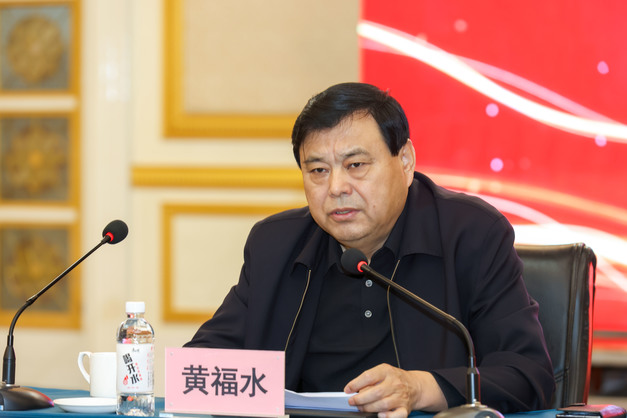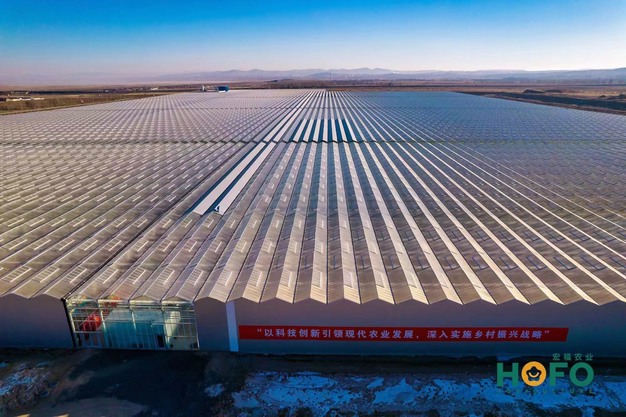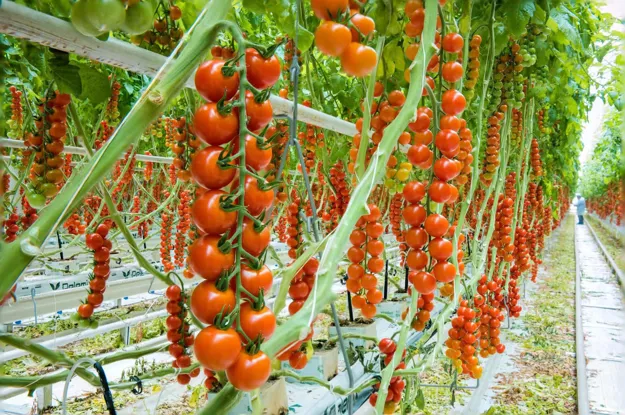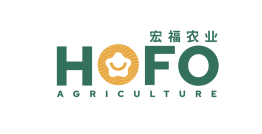Greenhouse horticulture has developed rapidly in China in recent years. At the same time, due to China's vast territory, the development of greenhouse horticulture varies from province to province. Hofo Group has built many large-scale modern horticultural parks in northern China, which have formed a good driving demonstration effect. Hortidaily invited Mr. Huang Fushui, Secretary of the Party Branch and Chairman of the Board of Directors of Beijing Hofo Group, to share some information on the development of greenhouse horticulture in China and the future development strategy of Hofo Group.
 Huang Fushui, Secretary of the Party Branch and Chairman of the Board of Directors of Beijing Hofo Group
Huang Fushui, Secretary of the Party Branch and Chairman of the Board of Directors of Beijing Hofo Group
Hortidaily: In your opinion, what is the current development status of greenhouse horticulture in China?
"As a large agricultural country, China has a large population, little arable land, and relatively insufficient per capita resources. With the continuous increase of the total social demand and consumers' demand for high-quality fruits and vegetables, efficient agriculture is an inevitable path for development. It can be seen that the initiative of local governments, skilled personnel, and farmers in developing horticulture in China is increasing. Relevant documents have been issued one after another. Greenhouse horticulture has been promoted in most parts of China and has great potential for development."
"Compared with traditional solar greenhouses, glass greenhouses started relatively late in China and borrowed more from foreign development models and technologies. They have not yet formed true Chinese characteristics. Low levels of dataization, insufficient equipment and technology, lack of management capabilities, and other imperfect supporting service institutions are the main problems encountered in the development. Some domestic projects built in the early years did not achieve real profits. How to make intelligent greenhouses profitable in China is the key to long-term sustainable development. Hofo Agriculture is also continuing to improve relevant links in the developing layout, design and construction, production, and operation management, and will continue to make efforts in the construction of digital management and control systems, Wanzhong technology intelligent equipment, and production technology output."
Hortidaily: How does Hofo Group lay out the development of the modern agricultural industry?
"At present, Hofo Group has built several modern agricultural industrial parks in Beijing, Inner Mongolia, Yunnan and other places, with a total operating area of over 1 million square meters. In the next three years, a strategic layout of two areas, one center and multiple bases, will be basically formed, with two core production areas, one south (Yunnan) and one north (Inner Mongolia), and the Beijing R&D center is driven by each other. In this process, we must first give full play to the demonstration and promotion role of core production areas and gradually form regionalized and point-like divergent replication development. In the process of development, gradually improve the vocational skills training of production personnel and operation personnel to quickly achieve the accumulation of talents in greenhouse horticulture. While improving the development of the regional agricultural modernization industry, we will continue to improve the technology output and the entire industrial chain, and actively explore and promote the deep integration of the agricultural industry with tourism, culture, health, elderly care and other industries."

"Take Hofo Modern Agricultural Industrial Park in Ulanqab, Inner Mongolia, as an example. After the construction and operation of the 300,000-square-meter greenhouse horticultural park in Chahar Right Front Banner, relying on the local geographical advantages, it will 'efficiently' produce 'high-quality' agricultural products as a focus. It will quickly become an important fruit and vegetable supply base in Beijing-Tianjin-Hebei and other regions, which will have a positive impact on promoting the optimization of Ulanqab's industrial structure and promoting high-quality economic development."
"During the construction and operation of the Ulanqab project, we have achieved some major breakthroughs in our independent technologies, such as water treatment systems and intelligent agricultural machinery, which have also reduced our operating costs and achieved basic controllability. At the same time, our technical team continues to summarize the learned lessons in the development of greenhouse horticulture, and jointly launched the training courses with Beijing Agriculture Technical Extension Station and other units to teach practitioners across the country. Taking advantage of the successful operation experience in Ulanqab and other places, Hofo Agriculture has formed a mature and effective production and operation model. It selects areas with suitable natural conditions and policy conditions across the country, and prepares for more modern agricultural industrial parks."
"At the same time, Hofo Agriculture continues to build a digital management and control system, and builds a digital management and control service system by mastering the data of the entire production process and important links in management and operation. Provide powerful and accurate data support for the further development of Hofo Agriculture in the future, and truly improve the technological level of Hofo Agriculture. We have set up a technology research institute, and its members are all students from China Agricultural University and other higher agricultural colleges. They are very young and have strong learning abilities. In the future, these personnel will become the backbone of greenhouse operation and management, not only operating Hofo's greenhouses, but also other partners' greenhouses. The operation and control capabilities must reach more than 10 million square meters."

Hortidaily: Tomatoes are one of the main crops grown in modern greenhouses. Hofo Group mainly grows small tomatoes. What is the future development strategy? Will other high-value crops be considered?
"Cucumbers, eggplants, bell peppers, strawberries, and lettuce are common in international greenhouse horticulture. But in China, the current market demand and market prices are mostly not enough to support the operating costs of large-scale greenhouses. Hofo currently grows some cucumbers and bell peppers in addition to tomatoes, but overall, its economic benefits cannot be compared with tomatoes."
"The transition from traditional greenhouses to glass greenhouses will take time. Our current industrial scale is 1 million square meters, and we plan to continue to expand the scale. High-value-added crops such as blueberries and cherries have become popular in recent years. Hofo Group is also planning to get involved in these emerging fields in the process of laying out the tomato market supply and cultivation across China, so as to expand more business."
 More information:
More information:
